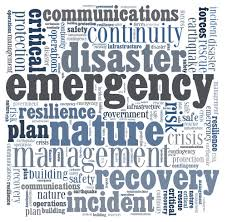II. YOUTH, DISASTER AND SAFETY

Crises and disasters cannot be avoided, but planning, training and preparedness can mitigate their consequences. While significant incidents influence culture, they have a greater influence on disadvantaged communities. Children and young adults are in this category and special planning and education needs to be considered. Numerous studies have shown the importance of young people's early involvement in disaster planning and preparedness. However, most of the emergency assessment and crisis prevention studies for young people are descriptive and end up in handbooks, suggestions and case-by - case lectures.
Given the recent tragedies involving school children around the world alongside other natural and man-made disasters, the current approach to education seems to be inadequate, and additional emergency and disaster management training is unquestionably needed. Young people need to understand not only the nature of the response to disasters and terrorist attacks in society, but also how to respond to the risk of a catastrophic event. Theoretical awareness is not adequate in this regard and a realistic solution should always be considered.
Young people should be trained to adjust their knowledge, develop crisis management and preparedness skills, and ensure that they are prepared for future emergencies. Even though young people are considered a risk group in a disaster because they cannot manage it, an educational initiative can make it an important resource to help them prepare for future emergencies.

